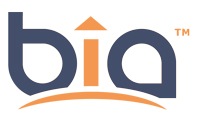
Five Steps to Ensure Consistency in the Management of Projects
Getting consistent results with project delivery requires the consistent use of project management methods and tools by every project team in the organization. Establishing consistency requires proper planning and effort by senior management and/or PMOs.
Many organizations struggle with project management because not everyone assigned to projects is competent or they may not be using proper processes, tools or templates to manage projects. This creates a high failure rate for projects and wasted organizational spending.
In our most recent project management research study, we found that the organizations that spent the time and effort to develop effective project management frameworks have been able to realize increased productivity, market share and shareholder value. These organizations have applied the following five steps to success:
- Establish clear terms of governance for the application of project management in the organization
- Develop clear Project Management Methodologies or Frameworks
- Provide project teams with easy-to-use project management tools and templates that will ensure consistency of project management.
- Train employees in project management so they know how to apply the project management methodology, project management tools and templates.
- Oversee all projects to make sure the organizations project management framework, templates and tools are being used consistently.
1. Establish clear terms of governance for the application of project management in the organization
Governance relates to decisions that define expectations, grant power or verify performance. Governance establishes decisions that:
- Define expectations for how projects will be managed.
- Grant power to those responsible for the successful management of projects.
- Identify how project performance will be consistently measured.
- Clarify how all projects will be managed on a consistent basis.
2. Develop clear project management methodologies or frameworks
Project management processes, often referred to as “Project Management Methodologies or Frameworks” should be both clear and adaptable for all project teams and sizes of projects-whether large, medium or small. They must include a “stage-gate” approval process for longer-term projects, with specific templates requiring approval signoff at each gate.
If the concepts and processes are kept simple, project managers and project teams will more readily accept them and better understand how they can help them to be successful. Here are some commonly used project management processes:
- Project Management process
- Business Requirements process
- Customer requirements process
- Project Scoping process
- Project Planning process
- Project Change Management process
- Risk Management process
- Communication process
- Close-out and evaluation process
- Project Knowledge-transfer process
3. Provide project teams with easy-to-use project management tools and templates that will ensure consistency of project management
To reinforce the organization’s approved project management methods for managing processes it’s helpful to create clear and easy-to-use tools and templates for use on all projects.
Before starting from scratch to develop your project management templates, you may want to check out the various commercial templates on the market. There may be a basic template that you can customize for your organization that will save you time and effort.
These templates and tools will reinforce the organization’s approved methodologies and processes for managing projects and also provide a time-saving service to project teams. Here are some commonly used tools and templates:
- Project Scope Statement
- Business Requirements Document
- Milestone Report
- Change Request
- Risk Management Report
- Reporting Templates
- Meeting Template
- Close out report
As cited in our 2010 PMO research report “How Project Management Offices Can Improve Organizational Effectiveness”, there is not much change in the top project management tools and templates used by Project Management Offices between our 2005 and 2010 studies. The most common ones continue to be the project management process itself (79% in 2005 and 89% in 2010), Change Request (74% in 2005 and 83% in 2010), Reporting templates (72% in 2005 and 73% in 2010), Scope Statement (71%) and Issue Logs (62% in 2005 and 71% in 2010).
Other popular project management tools and templates cited by the respondents include:
- Organization change management plan template
- Customer satisfaction
- Project plan template
- Charter template
- Business case
- RASCI
- Close-out template
- Communication templates
- Lessons learned template
- Project status report template
- Business Requirements Document
Business Improvement Architects has developed a useful project management template product that you can adapt with your own corporate logo. It’s called, “Project Success Templates®”. We developed these templates from our extensive research in project management methods and best practices. They comply with PMBOK and ISO 10006.
It includes a module, Project Management Competency Assessments which will help you assess candidates for the roles of Project Manager, Project Team Member, Business Analyst and Project Auditor. These assessments are unique and a great project management tool for project team selection or determining training requirements.
4. Train and mentor employees in project management so they know how to apply your organization’s Project Management Framework, Project Management Tools and Templates
Customized training that incorporates your organizations project management methods, templates and tools goes a long way to ensuring that employees know how to manage projects and how to use the project management tools you have provided for them.
5. Oversee all projects to make sure the organizations project management framework, templates and tools are being used.
We suggest that you establish a committee or Project Management Office to oversee projects and to ensure that project teams are applying the project management methods, project management templates and tools consistently and correctly.
Summary
With some effort to develop simple yet effective project management frameworks and tools and enforce their consistent application, organizations are able to reap the benefit of reduced project risk and higher project success rate that ultimately will lead to increased profitability.




